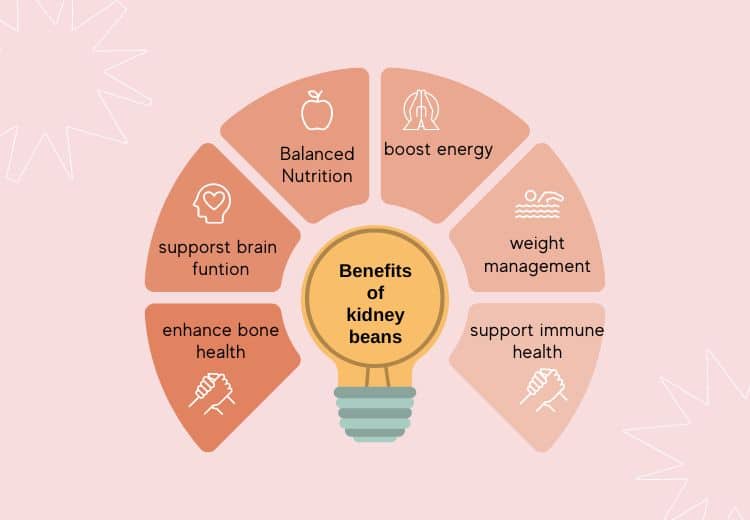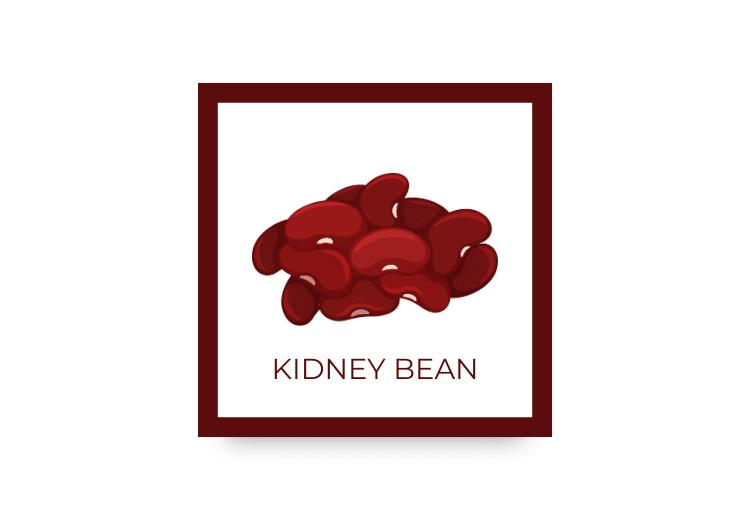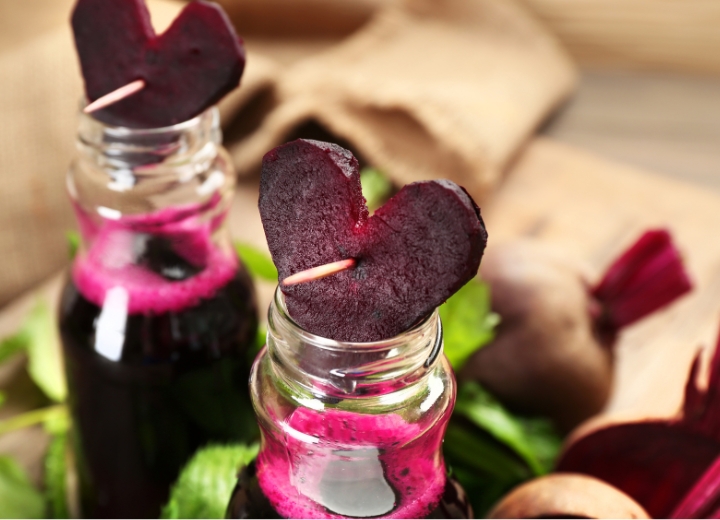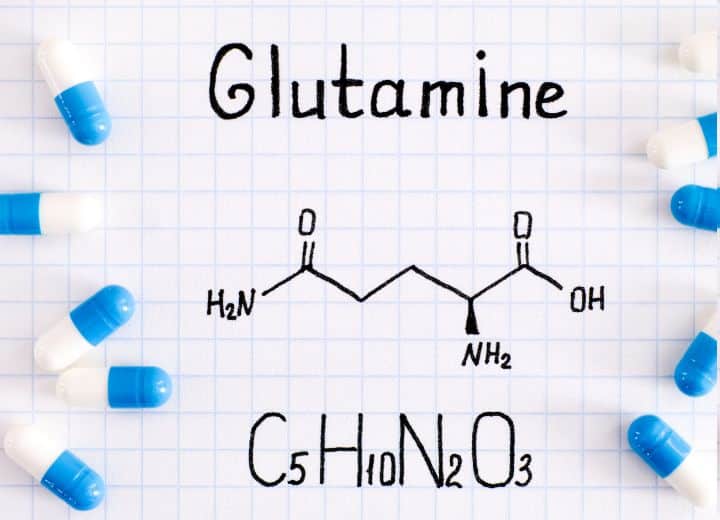Kidney beans | Composition, Benefits, and Disadvantages
Kidney beans, scientifically known as Phaseolus vulgaris, are a popular type of legume recognized for their kidney shape and rich nutritional profile. These beans are a staple in many cuisines around the world and are valued for their versatility and health benefits.
Types of Kidney Beans
Red Kidney Beans
Red kidney beans are the most commonly recognized type. They have a robust flavor and hold their shape well during cooking, making them perfect for hearty dishes like chili and stews.
White Kidney Beans (Cannellini)
Cannellini beans, also known as white kidney beans, are slightly milder and softer than their red counterparts. They’re often used in Italian cuisine and are great for adding creaminess to soups and casseroles.
Light Speckled Kidney Beans (Cranberry Beans)
These beans are distinguished by their speckled appearance and slightly nutty flavor. They’re versatile and can be used in a variety of dishes, from salads to baked beans.
Dark Red Kidney Beans
Dark red kidney beans are similar to red kidney beans but have a deeper color and slightly richer flavor. They’re commonly used in Cajun and Creole dishes.
Composition of Kidney Beans
Macronutrients
- Proteins: Kidney beans are a fantastic plant-based protein source, providing around 8-9 grams per 100 grams. This makes them an excellent choice for vegetarians and vegans.
- Carbohydrates: They are rich in complex carbohydrates, offering a slow and steady release of energy, which helps maintain blood sugar levels.
- Fats: Kidney beans are low in fat, with less than 1 gram per 100 grams, making them a heart-healthy food.
Micronutrients
- Vitamins: Kidney beans are a good source of several B vitamins, including folate, which is crucial for DNA synthesis and repair.
- Minerals: They are packed with essential minerals such as iron, magnesium, potassium, and zinc, which support various bodily functions.
Fiber Content
Kidney beans are high in dietary fiber, with about 7-8 grams per 100 grams. This helps in promoting digestive health and preventing constipation.
Health Benefits of Kidney Beans

High Protein Content
Kidney beans provide a substantial amount of plant-based protein, essential for muscle building and repair. They are an excellent protein source for those following a vegetarian or vegan diet.
Rich in Antioxidants
These beans are rich in antioxidants, which help combat oxidative stress and reduce the risk of chronic diseases like cancer and heart disease.
Supports Heart Health
The high fiber content, along with significant levels of potassium and magnesium, helps maintain healthy blood pressure and reduce the risk of heart disease.
Regulates Blood Sugar Levels
Kidney beans have a low glycemic index and are rich in complex carbohydrates, making them ideal for managing blood sugar levels and preventing diabetes.
Aids in Weight Management
The high fiber and protein content in kidney beans can promote a feeling of fullness, reducing overall calorie intake and aiding in weight management.
Improves Digestive Health
The dietary fiber in kidney beans supports healthy digestion by promoting regular bowel movements and preventing constipation.
Enhances Bone Health
Kidney beans are rich in calcium, magnesium, and phosphorus, which are vital for maintaining strong and healthy bones.
Boosts Energy Levels
Iron is crucial for the production of hemoglobin, which carries oxygen to the body’s cells. Kidney beans, being high in iron, help prevent fatigue and boost energy levels.
Supports Brain Function
The presence of B vitamins, particularly folate, supports brain health and cognitive functions, reducing the risk of neurodegenerative diseases.
Anti-inflammatory Properties
Kidney beans contain phytonutrients that have anti-inflammatory properties, which can help in reducing inflammation and associated diseases.
Promotes Skin Health
The antioxidants and essential minerals in kidney beans contribute to healthy, glowing skin by combating free radicals and promoting collagen production.
Reduces Risk of Certain Cancers
Regular consumption of kidney beans has been linked to a reduced risk of certain types of cancer, including colorectal cancer, due to their high fiber and antioxidant content.
Supports Eye Health
The presence of nutrients like zinc and antioxidants in kidney beans helps maintain good vision and overall eye health.
Strengthens Immune System
The combination of vitamins, minerals, and antioxidants in kidney beans boosts the immune system, helping the body to fight off infections and illnesses.
Provides Essential Amino Acids
Kidney beans contain essential amino acids that the body cannot produce on its own, making them an important part of a balanced diet.
Also Read: Food Poisoning | Signs & Symptoms
Disadvantages of Kidney Beans
Potential for Causing Digestive Issues
Kidney beans can cause digestive discomfort, such as bloating and gas, especially if not cooked properly or consumed in large quantities.
Presence of Antinutrients
Raw kidney beans contain antinutrients like lectins and phytic acid, which can interfere with the absorption of essential nutrients.
Allergic Reactions
Some individuals may be allergic to kidney beans, experiencing symptoms like itching, swelling, and in severe cases, anaphylaxis.
Risk of Toxicity if Not Properly Cooked
Raw kidney beans contain a toxin called phytohaemagglutinin, which can cause severe food poisoning. Proper cooking methods must be followed to eliminate this risk.
Interaction with Certain Medications
Kidney beans can interact with certain medications, such as blood thinners, due to their high vitamin K content. It’s important to consult with a healthcare provider if you are on such medications.
Conclusion
Kidney beans are a nutrient-dense food with numerous health benefits, from supporting heart health to boosting energy levels. However, they must be prepared and consumed correctly to avoid potential disadvantages such as digestive issues and toxicity. Including kidney beans in your diet can contribute to overall health and wellness, but it’s important to balance them with other nutrient sources.
FAQs
What Are the Best Ways to Cook Kidney Beans?
Soaking kidney beans overnight and then boiling them thoroughly is the best way to cook them. This process reduces antinutrients and ensures they are safe to eat.
Can Kidney Beans Help with Weight Loss?
Yes, the high fiber and protein content in kidney beans can promote satiety and reduce overall calorie intake, aiding in weight loss.
Are Kidney Beans Safe for Everyone to Eat?
While kidney beans are generally safe for most people, individuals with allergies or certain medical conditions should consult with a healthcare provider before consuming them.
How Do Kidney Beans Compare to Other Beans?
Kidney beans are similar to other beans in terms of nutritional benefits but are unique in their shape and slightly stronger flavor. They are particularly high in fiber and protein.
What is the Recommended Serving Size for Kidney Beans?
A typical serving size is about half a cup of cooked kidney beans, which provides a good balance of nutrients without excessive calories.
How Can I Reduce the Antinutrients in Kidney Beans?
Soaking and cooking kidney beans thoroughly helps reduce antinutrients like lectins and phytic acid, making them safer and more nutritious to eat.
Can Kidney Beans Cause Allergic Reactions?
Yes, although rare, some individuals may be allergic to kidney beans and should avoid them if they experience symptoms such as itching, swelling, or difficulty breathing.




